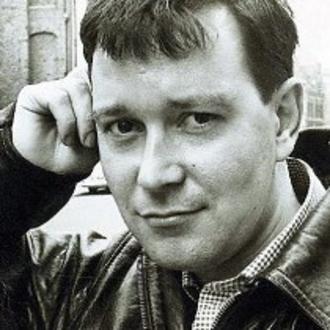We use cookies to improve the Bookmate website experience and our recommendations.
To learn more, please read our Cookie Policy.
To learn more, please read our Cookie Policy.
Accept All Cookies
Cookie Settings
Something went wrong. Try again.
John Kingsley ("Joe") Orton was an English playwright. In a short but prolific career lasting from 1964 until his death, he shocked, outraged and amused audiences with his scandalous black comedies. The adjective Ortonesque is now used to refer to something characterised by a dark but farcical cynicism.Orton began to write plays in the early 1960s. He wrote his only novel, posthumously published as Head to Toe, in 1959, and had his writing accepted soon afterward. In 1963 the BBC paid £65 for the radio play The Ruffian on the Stair, broadcast on 31 August 1964. It was substantially rewritten for the stage in 1966.Orton had completed Entertaining Mr. Sloane by the time Ruffian was broadcast. It premiered on 6 May 1964 directed by Michael Codron. Reviews ranged from praise to outrage. It lost money in its 3-week run, but critical praise from playwright Terence Rattigan, who invested £3,000 in it, ensured its survival. Sloane tied for first in the Variety Critics' Poll for "Best New Play" and Orton came second for "Most Promising Playwright." Within a year, Sloane was being performed in New York, Spain, Israel and Australia, as well as being made into a film and a television play.Orton's next work was Loot, written between June and October 1964. The play is a wild parody of detective fiction, adding the blackest farce and jabs at established ideas on death, the police, religion, and justice. It underwent sweeping rewrites before it was judged fit for the West End. Codron had manoeuvred Orton into meeting his colleague Kenneth Williams in August 1964. Orton reworked Loot with Williams in mind for Truscott. His other inspiration for the role was DS Harold Challenor. The play opened to scathing reviews. Loot moved to the West End in November 1966, raising Orton's confidence to new heights while he was in the middle of writing What the Butler Saw. Loot went on to win several awards and firmly established Orton's fame. He sold the film rights for £25,000 although he was certain it would flop. It did, but Orton, still on an absolute high, proceeded over the next ten months to revise The Ruffian on the Stair and The Erpingham Camp for the stage as a double called Crimes of Passion; wrote Funeral Games; wrote the screenplay Up Against It for the Beatles; and worked on What the Butler Saw.The Good and Faithful Servant was a transitional work for Orton. A one-act television play completed by June 1964 but first broadcast by Associated-Rediffusion on 6 April 1967. The Erpingham Camp, Orton's take on The Bacchae, written through mid-1965 and offered to Rediffusion in October of that year, was broadcast on 27 June 1966 as the 'pride' segment in their series Seven Deadly Sins.Orton wrote Funeral Games from July to November 1966 for a 1967 Rediffusion series, The Seven Deadly Virtues, It dealt with charity--especially Christian charity—in a confusion of adultery and murder. Rediffusion did not use the play; instead, it was made as one of the first productions of the new ITV company Yorkshire Television, and broadcast on 26 August 1968. On 9 August 1967, Orton's lover Kenneth Halliwell bludgeoned 34-year-old Orton to death at his home in Islington, London, with a hammer and then committed suicide with an overdose of Nembutal tablets. Investigators determined that Halliwell died first, because Orton's body was still warm. Orton was cremated at the Golders Green Crematorium, his coffin brought into the chapel to The Beatles song "A Day in the Life". Harold Pinter read the eulogy saying "He was a bloody marvellous writer." In his hometown, Leicester, a new pedestrian concourse outside the Curve theatre's main entrance is named "Orton Square." John Lahr wrote a biography of Orton entitled Prick Up Your Ears in 1978. A 1987 film adaptation directed by Stephen Frears starred Gary Oldman as Orton and Alfred Molina as Halliwell. Alan Bennett wrote the screenplay.
more
Books
- unavailable
fb2epub
Drag & drop your files
(not more than 5 at once)

